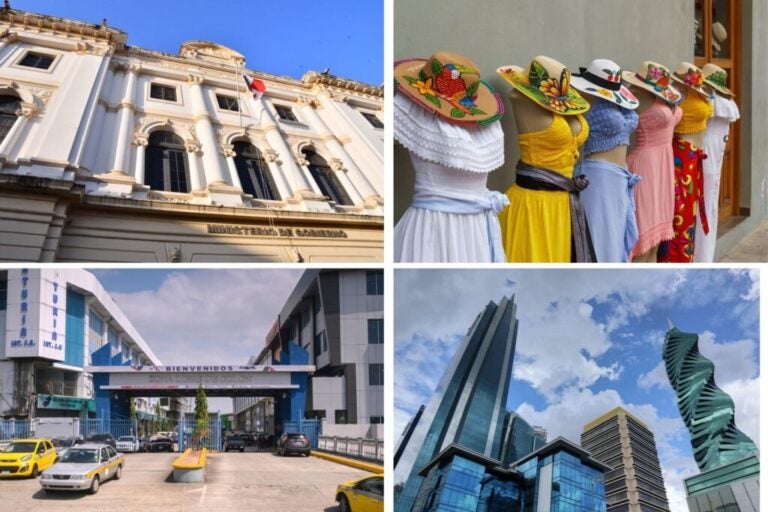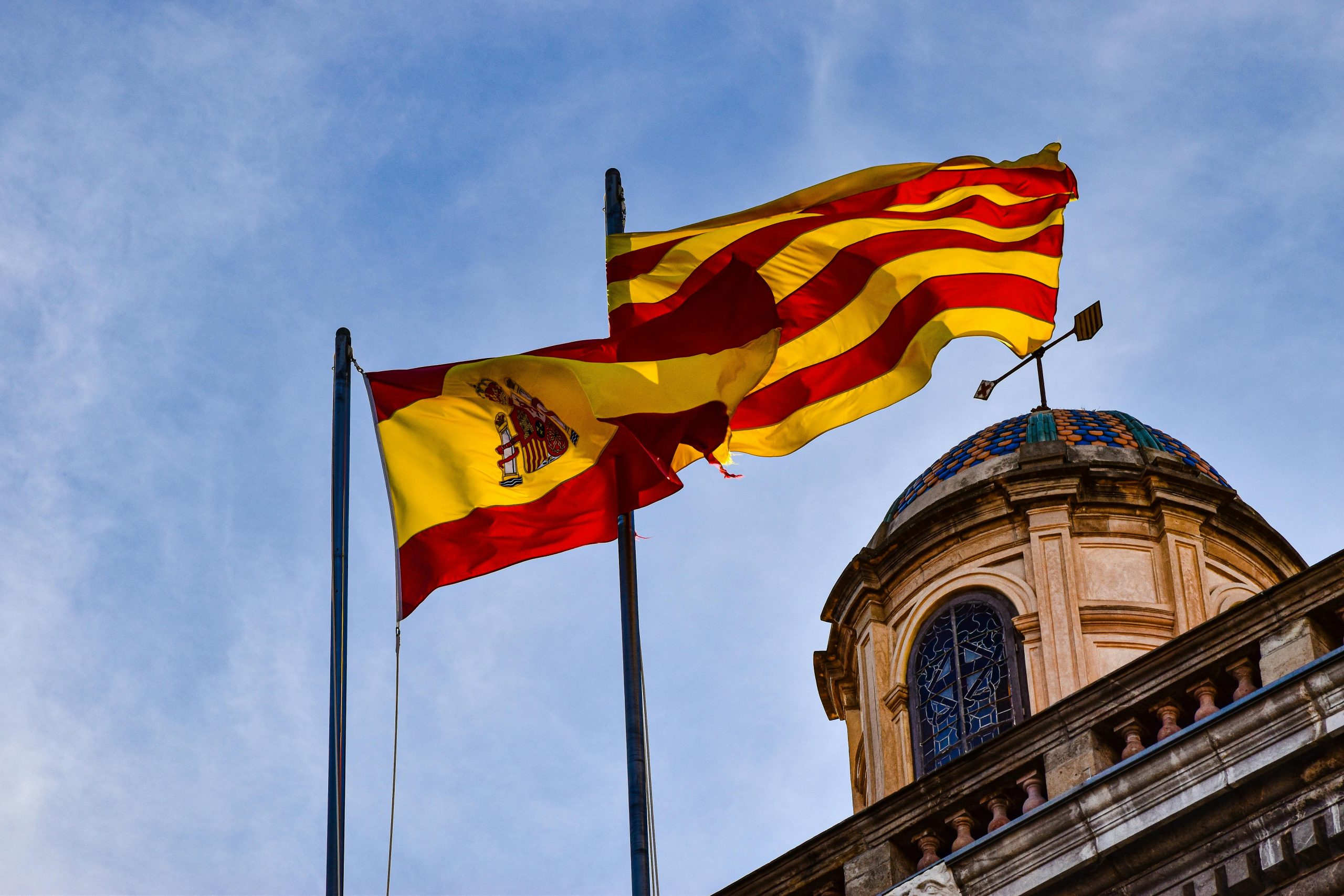Taxes in Panama: What do you need to pay?
We bring you the taxes in Panama that you need to know to reside in this tropical paradise. Live and work here with complete peace of mind!
Can you imagine living in Panama? The country is one of the most advanced in Latin America and is known for having a tax system that’s favourable to both residents and foreigners. Residing in this tropical paradise is a dream for many people and knowing what the taxes in Panama are, as well as the tax benefits you can get, can save you a lot of hassle.
At Holafly, we’ve researched these tax obligations and in the following article we’ll break down the taxes in Panama for individuals, companies and foreigners. We’ll also provide you with examples and details so that you can calculate your tariffs and take advantage of the benefits of the Panamanian system.
Taxes for individuals or natural persons in Panama
First of all, let us explain what a natural person is. This concept is attributed to any independent person with his or her own capacity to carry out legal formalities, such as signing contracts or sales and purchases, as well as to fulfil obligations and obtain his or her own rights, according to the law of the country where he or she resides.
Taxation in Panama for individuals is focused on employees, the self-employed, such as digital nomads, who thanks to the nomad visa that the government has introduced, they can reside and telework for a period of time in the country. They’re also students or simply people who decide to live here for pleasure and enjoy a quiet life. All of them must comply with the following taxes:
1. Income Tax
Panama uses a territorial tax system, therefore, this tax is only mandatory for income earned within the country. Profits from foreign countries are exempt from paying this tax. We explain how the rates on the income of an individual or natural person would look like:
- Exemption: Earnings up to $11,000 per year.
- 15% rate: Income from $11,001 to $50,000.
- Rate of 35%: More than $50,000.
- Example: If a person earns $30,000 per year in Panama, they’ll pay 15% on $19,000, which is equivalent to $2,850 in income tax.
2. Tax on the transfer of movable goods and services (ITBMS)
Another type of tax in Panama is the ITBMS, which is equivalent to VAT in other countries. It’s a method of government revenue collection through the purchase of goods, contracting of services or imports of products by individuals. The main tariffs applied in the country are as follows:
| ITBMS Tariff | Products |
|---|---|
| General rate of 7% | Applies to most products such as clothing, household appliances, furniture, professional services, etc. |
| Exemptions | Medicines, basic foodstuffs, educational services, medical assistance, books and publications. |
3. Property tax
Properties acquired in Panama are subject to an annual tax that’s calculated according to their rateable value. This depends on its location, square metres, etc., so that any natural person owning a property in this country will have to pay this tax. However, low-value properties are exempted from declaring this tax. Let’s take a look at the rates according to the price of the property:
- Exemption: For any property up to $120,000.
- 0.5% fee: For a value of $120,001 to $700,000.
- 0.7% rate: Real estate over $700,000.
- Example: A property valued at $200,000 would pay 0.5% on $80,000, which is equivalent to $400 per year.
4. Selective Consumption Tax (ISC)
The government has imposed higher taxes in Panama on products such as tobacco and alcoholic beverages. The main reason for this is to try to discourage consumption among the population. This type of tax is also levied on fuel. Here are the rates:
- 5% to 15% tariff: Applies to fuel.
- Rate of 10% to 15%: For alcoholic beverages.
- 32.5% tariff: For tobacco and related products.

Taxes for legal persons or companies in Panama
In the previous section, we’ve seen the taxes in Panama for individuals or natural persons and now we want to explain what are the tax obligations for legal persons and companies. Companies in Panama are subject to a tax system designed to encourage investment and economic activity. If you’re thinking of setting up your own business in this country or expanding your company with new branches, there are different taxes that the Panamanian tax system has designed exclusively for you.
To make these payments, you must have an account in a bank in Panama, so we leave you a post about the best banks in the country for foreigners best banks in the country for foreigners that’ll be of great help to you. Also, as an entrepreneur, if you travel frequently and need to have a global connection that works for any country, keep an eye out for the new new Holafly plans! You have a choice of subscriptions from 10GB, 25GB or unlimited data. For just $41.48 per month, you’ll forget about having to change cards in every country and save more than signing up for a global eSIM.
1. Corporate Income Tax
Panama’s corporate income tax is among the taxes in Panama, but the country’s territorial tax system exempts income generated outside the country. Therefore, it’s only applicable to the profits of companies from the activity generated in Panama. These are the fares:
- General rate: 25% of annual net income.
- Reduced rates: For small businesses with annual gross revenues of less than $200,000.
- Example: A company with a net profit of $500,000 will have to pay $125,000 in income tax.
2. Tax on the transfer of movable goods and services (ITBMS)
As we’ve seen with individuals, this tax also applies to companies selling goods or services. These companies will have to add a percentage to their products which will be reflected in the invoice they issue to customers and later on, they’ll have to incorporate the ITBMS in their tax return. We remind you that the general rate is 7% on the value of goods and services. For example, a company selling $100,000 worth of goods will have to collect and declare $7,000 of ITBMS.
Important: If you are a frequent traveler and want to stay connected without worrying about expensive roaming or looking for a new SIM at every destination, Holafly’s subscription plans are for you. With a single eSIM, enjoy internet in more than 170 countries for a fixed price and no surprises on your bill. travel without limits and connect easily and securely! 🚀🌍

3. Dividend Tax
Panama dividend taxes are those profits that shareholders receive through dividends from companies. These returns can come from local or foreign income, each at a different rate, which we will look at below:
- 5% rate: For dividends from foreign income or exempt activities.
- 10% rate: For dividends derived from local income.
- Example: A company that distributes $50,000 in local income dividends will have to pay $5,000 in tax.
4. Transaction Notification Tax
This tax applies to companies operating within Panamanian territory and is calculated on gross income. It’s a compulsory type of contribution and has a general rate of 2% of gross income, with a minimum annual payment of $100 and a maximum of $60,000.
For example, a company with gross revenues of $1,000,000 will have to pay $20,000 of this tax. On the other hand, there’s another tariff of less than 1% for the country’s free or duty-free zones, which in any case cannot be less than $100 and must not exceed $50,000.
5. Corporate property tax
Companies owning corporate real estate in the country of Panama are subject to the payment of this tax , which is governed according to the commercial activity of the company, as well as its location. The rates applicable to this tax are as follows:
- Exemption: For the property up to $120,000.
- 0.5% rate: For properties valued between $120,001 and $700,000.
- 0.7% fee: When they exceed $700,000.
- Example: A company owning a property valued at $900,000 will pay $4,400 per year.

Tax benefits in Panama
After seeing in detail all the taxes in Panama for individuals, legal entities and companies, you should know that the government of this country has implemented a series of tax benefits. This advantage programme is designed to attract foreign investors, entrepreneurs and companies.
Inthis way, Panama benefits from the technological development of companies that decide to do research in this area. Another benefit is the increase in jobs among the population, as well as the establishment of cultural links between different countries. It should also be borne in mind that the state’s funds grow with the contributions that companies and individuals collect annually through taxes. This table explains the tax benefits available to you:
| Benefit | Details |
|---|---|
| Tax exemptions for companies in special zones | The Colon Free Zone areas or the Ciudad del Sabe, are exempt from income tax, imports and ITBMS. |
| Tax residence by investment | Foreigners investing in Panama can obtain tax residency and tax exemption on income earned outside the country. |
| Benefits for start-ups and small businesses | Reduced income tax rates for small businesses with revenues of less than $200,000. The government also supports start-ups in the first years with significant reductions. |
| Exemptions for the tourism sector | Income tax exemption for a specific period and benefits in the importation of equipment and inputs. |
Frequently Asked Questions about taxes in Panama
Panama applies a territorial tax system, which means that only income generated within the country is taxed. Therefore, profits earned outside Panama are exempt from taxation, both for individuals and companies.
Income tax for individuals in Panama is progressive, with rates varying from 0% to 25%, depending on the level of annual income of each person. For example, income of less than $11,000 per year is exempt from this tax.
Foreign companies operating in Panama pay taxes only on the income generated by the activity carried out in the country. In addition, these companies may benefit from certain tax exemptions, for example, if they are established in special economic zones such as the Colon Free Zone.
Foreigners have some tax advantages in Panama such as exemptions on income earned outside the country, as well as tax incentives for those who invest in real estate or businesses and benefits for retirees.
The ITBMS (Impuesto de Transferencia de Bienes Muebles y Servicios) is an indirect tax in Panama similar to VAT in other countries. The standard rate is 7% and is paid by consumers when they purchase goods or services, as well as by businesses when they act as collectors of this tax through their invoices. The rate of this tax is really low compared to VAT in most European countries where the average rate is 18%.
Tax returns for individuals or natural persons must be submitted by
15 March. On the other hand, companies have a slightly longer deadline, until the 31st of the same month. It’s important to comply with these dates to avoid penalties from the tax office.
Taxpayers in Panama can deduct expenses in their income tax return to reduce their taxable income, such as mortgage interest, health insurance payments and contributions to retirement funds or private pensions.





 Language
Language 


















 No results found
No results found







